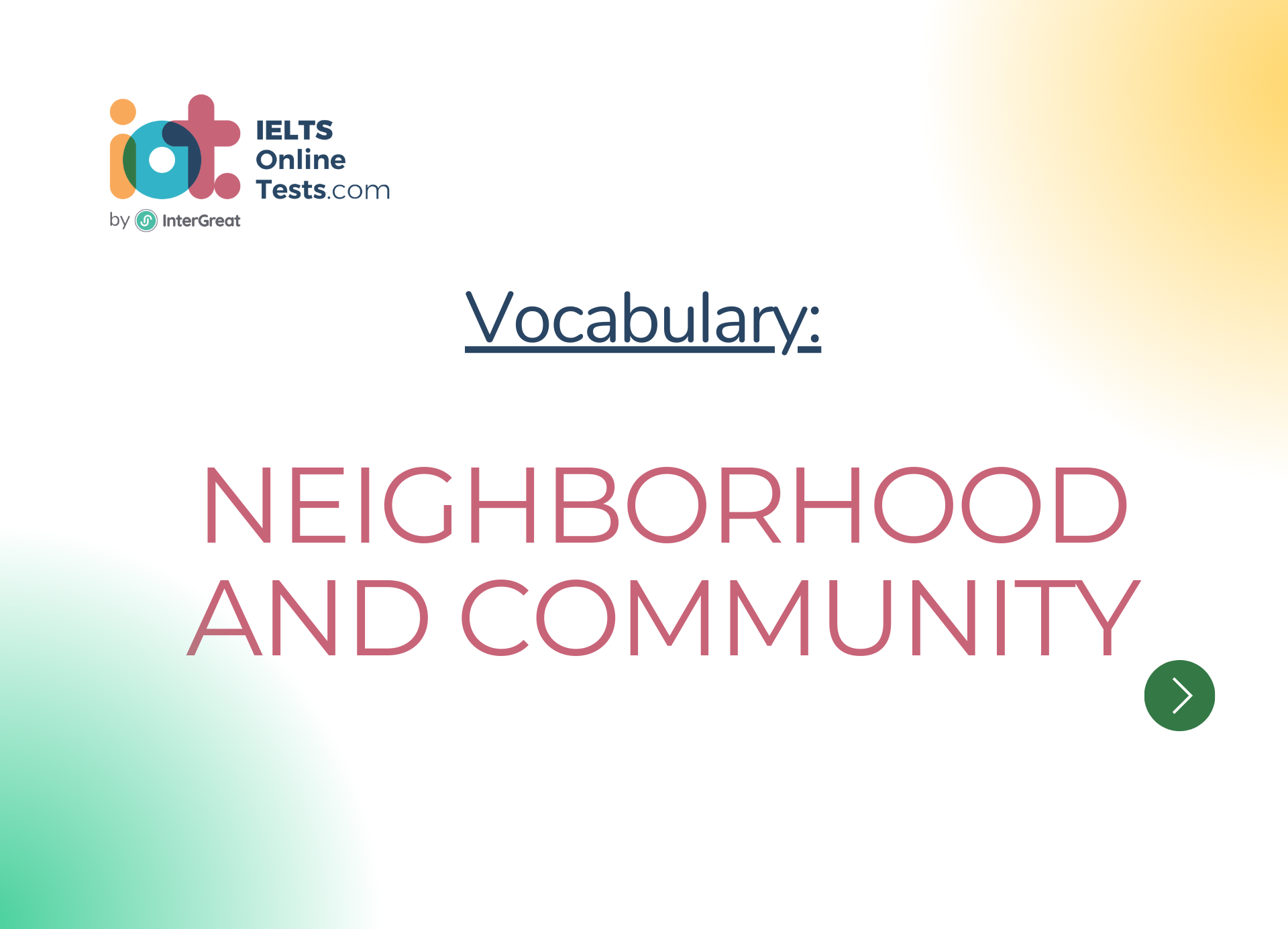
Neighborhood and community
Here's a lesson on vocabulary related to "Neighborhood and Community" for the IELTS band score 3.0-4.5:
I. Types of Neighborhoods:
Residential area: A neighborhood primarily consisting of houses.
Suburb: An area located on the outskirts of a city, typically residential.
Downtown: The central business district of a city.
Rural area: An area located in the countryside, with fewer buildings and more open spaces.
Gated community: A residential area with restricted access and additional security measures.
Industrial area: An area primarily used for manufacturing and industrial activities.
II. Community Facilities:
Park: An area of open space for recreational activities.
Playground: An area equipped with equipment for children to play.
School: An educational institution for students of various age groups.
Library: A place where books and other materials are available for borrowing or reading.
Community center: A facility that offers various services and activities to the community.
Sports complex: A facility with multiple sports fields or courts for recreational activities.
Hospital: A medical facility for providing healthcare services.
Shopping mall: A large building with multiple shops and stores.
III. Community Services:
Police station: A facility where law enforcement officers work.
Fire station: A facility where firefighters and equipment are based.
Post office: A facility for sending and receiving mail and packages.
Community garden: A shared garden space where individuals grow plants and vegetables.
Community center: A place that hosts events, classes, and activities for the community.
Recycling center: A facility where recyclable materials are collected and processed.
IV. Neighborhood Features:
Streets: The roads within a neighborhood where vehicles and pedestrians travel.
Sidewalks: The paved paths for pedestrians to walk along the streets.
Traffic lights: Signals used to control the flow of vehicles at intersections.
Crosswalk: A designated area for pedestrians to cross the road safely.
Park benches: Seats placed in parks for people to rest and relax.
Streetlights: Lights placed along the streets for illumination at night.
Residential buildings: Houses, apartments, or other types of dwellings in the neighborhood.
V. Community Events:
Festivals: Celebrations or events held in the community, often with cultural or religious significance.
Parades: Processions or marches held to celebrate a special occasion.
Fundraisers: Events organized to raise money for a cause or charity.
Neighborhood gatherings: Informal get-togethers among neighbors to socialize and build connections.
Cultural performances: Shows or exhibitions that showcase the traditions and arts of a particular culture.
Community workshops: Educational sessions or training programs conducted for community members.
Remember to practice using these vocabulary words in sentences and conversations to improve your understanding and fluency in English.




